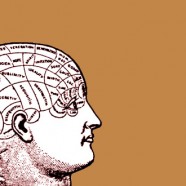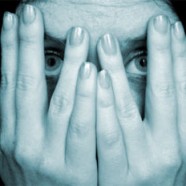Why Did So Many Women Vote for Roy Moore?
On Monday, December 13, 2017, it became known that Doug Jones, a Democrat, had defeated Roy Moore, a Republican, in the traditionally Republican state of Alabama, for a seat in the US Senate. Mr. Moore seems to be, let’s charitably say, a colorful character.
Read MoreCancer and the Power of Placebo
An interview with author Dr. Paul Offit gives us some insight into the placebo effect, and its place in alternative medicine, complementary medicine and traditional, evidence-based medical treatment…
Read MoreWhy We Shop
I recently read an article about shopping (on Medscape.com) and the psychology of consumption that I think is very relevant to life in our modern world. The article was an interview with consumer psychologist Kit Yarrow, PhD., who talks about the neuropsychological influences of shopping. As the holiday season commences and shopping is a fact of life for many of us, I think the points she makes are important to keep in mind. Dr. Yarrow specializes in the study of consumers and the psychology behind shopping, and she has published her findings in a recent book entitled “Decoding the Consumer Mind”. (Available here on Barnes & Noble). One of the most important points Dr. Yarrow makes is this one: The motivation for almost everything we buy has something to do with connecting with other human beings. Even when it comes to practical purchases, the particular brand or product we choose relates to our connections with other human beings. She goes on to say that there has been a shift in our society towards loneliness, anxiety, societal anger and individualism… all emotions which are relieved in the shopping process. She says that as a society, we have more anxiety and less support from our community. This creates an environment of anxiety when we are shopping, and in that type of environment, we process information differently. People tend to start from a position of mistrust, and the vendor has to do more than ever before to win our loyalty and attention. Dr. Yarrow goes on to say that we tend to use shopping as a way to calm our anxiety and prepare for events. As we shop, we visualize our future with the product we are shopping for and this is almost like an athlete who is visualizing to enhance his or her performance. She says that shopping is also a way to express creativity. When we shop online, it’s a way to take a break from our everyday world as well. And then there is the hunt for bargains. Dr. Yarrow validates that there is a dopamine spike… a pleasurable experience… that comes from shopping and finding a bargain. That can account for the addictive quality that some people feel with shopping. When asked about the Black Friday shopping phenomenon, she says there are some people that see shopping almost as a competitive sport and go out looking for the fabulous bargain. But most people, she says, are either using shopping as a way to connect with family (it’s a tradition to go shopping together), or if they are alone, it’s a way to get out and connect with other people. Dr. Yarrow points out that in a Black Friday shopping situation, the stress and excitement put the shopper in a vulnerable position due to “the autonomic nervous system arousal that accompanies being in crowded, stressful places or experiencing a fear of missing out.” She always encourages people to wait 20 minutes before they buy something, allowing their brain to re-engage and their emotions to subside. Vendors are wise in the ways of attraction and how the brain works these days. They use odors, music and symbolic clues to attract the buyer and get them to make a purchase. They know that people are more likely to buy something if they can touch it, or that people tend to buy things in the center of a display. They have lots of information at their disposal about the way the human brain and emotions work. Consumers think they are immune to these tactics, but few people are. It is good to...
Read MoreDepression Types
Here is my personal view of the different personalities of depression, and possible treatments for each of them. The most prescribed antidepressants today belong to a group of medications called the SSRIs. To this group belongs Prozac, Effexor, Zoloft, Celexa, Lexapro, Paxil and others. Depression (excluding psychotic depression) seems to come in two flavors: low energy depression or its anxious cousin. The type of depression you are experiencing should dictate your choice of medication. In addition to recommending psychotherapy, which is a crucial treatment component for sufferers of depression, when you come to me as a patient, I may decide to prescribe one of the SSRIs. In my view, it is important to match the pharmacologic effect of a particular medication with the type of depression being experienced. The SSRIs each have their specific spectrum of effects. Prozac and Effexor tend to energize patients. Paxil, on the other hand, often has a calming effect. Zoloft, Celexa and Lexapro produce a more neutral effect. They may energize or calm, depending on a patient’s own biochemistry and sensitivity. Therefore, if you come to me with an anxious depression, I would probably prescribe one of the middle-of-the-road antidepressants or I might prescxribe Paxil to calm your anxiety. Taking a more calming antidepressant may also keep you from having to take a sedating medication such as Ativan, Xanax, Buspar or Valium, as the calming effect you are looking for is already built into those particular SSRIs. For the low energy depression, on the other hand, Prozac and Effexor might work better. Usually, I try to avoid giving an anxious patient an energizing SSRI because they may experience the energizing effect as an increase in anxiety. Obviously, this is something we will try to avoid. Despite the science involved, prescribing psychiatric medications is still an art where intuition and experience play an important role in making the right choice. Every physician will approach this task differently and each patient’s body and mind will respond differently. It is important to keep this in mind as you and your physician search for the correct medication that will relieve your unwanted symptoms of depression. In the end, your body and mind will make the best...
Read MoreAnxiety, A Stumbling Block
Anxiety: The Secret Stumbling Block in Depression Therapy Depression ranges in severity from mild and transient to severe and persistent. The most severe form of depression is called Major Depressive Disorder and may be difficult to treat and resolve. It poses a number of severe risks, not the least of which is that of possible suicide. Depression is also associated with significant medical problems such as heart disease and pain syndromes, to name a few. For this and other reasons, successful treatment is crucial. There are several theories as to what causes this debilitating mental illness. Life stress, anxiety and a predisposing vulnerability are thought to be contributing factors. An additional component is the biochemical changes in the brain, particularly changes in neurotransmitters such as serotonin. Serotonin depletion and its reversal is the rationale for the use of SSRI class of medications. An important component in the origin and course of depression is anxiety. Anxiety is reported by patients on a routine basis but is easily and commonly overlooked. In practice, this component of depression must be addressed if treatment is to succeed. I often wonder how many treatment failures are due to this oversight. An indicator that this oversight is common is the number of patients who are placed on antidepressants such as Prozac or Effexor for treatment of depression. These medications are known to be energizing; they can act like several cups of very strong coffee, not a welcome effect for someone who is already anxious. These two medications in particular are usually more appropriate for someone with a low-energy depression rather than an anxious depression. The anxiety component of depression is often not recognized, or even if recognized, is not taken into account in treatment. Resolution of anxiety can often be an essential component of treatment before depression can be...
Read More



